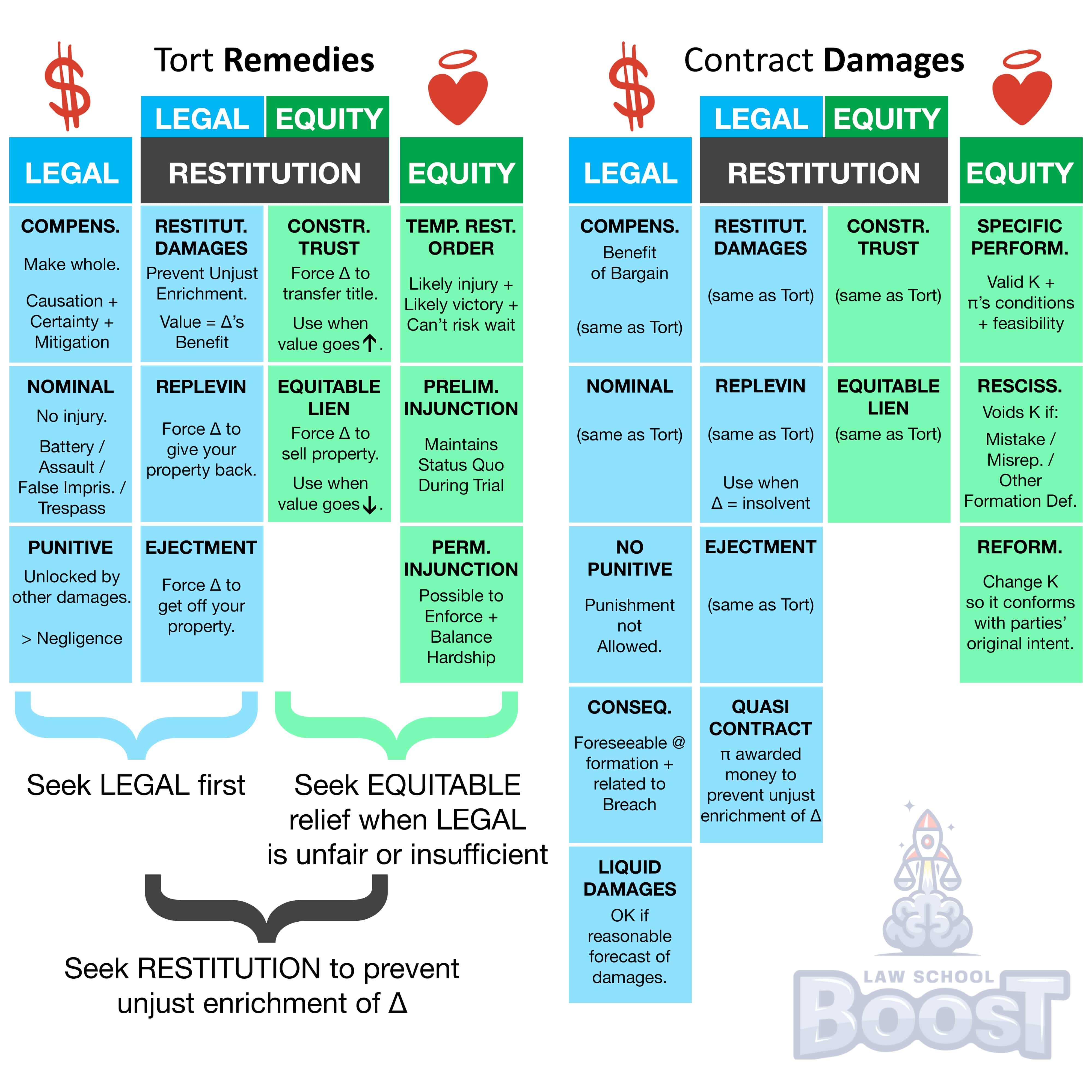🏥
Remedies • Tort - Equitable Remedies
REM#032
Legal Definition
Laches is an unreasonable delay by the plaintiff in initiating his claim that results in prejudice to the defendant. The period of laches may be shorter, but will never be longer than the statute of limitations. Laches begins to run from the time the plaintiff learns of the injury.
Plain English Explanation
When someone wants to stop another person from doing something through a lawsuit (called "injunctive relief"), there's a defense called laches. The term "laches" comes from the Old French word "lachesse," which means "slackness" or "negligence." It's rooted in the idea that someone shouldn't benefit from their own neglect or delay in taking action. Laches means that the person suing waited too long to bring the lawsuit, and this waiting hurt the person being sued. This waiting time can be shorter, but it can't be longer than a set time limit (called the statute of limitations). The clock starts ticking for laches when the person suing finds out they've been harmed.
Hypothetical
Hypo 1: Bob borrows Sam's lawnmower and damages it. Sam notices the damage immediately but doesn't say anything to Bob. Five years later, Sam decides to sue Bob to replace the lawnmower. Result: The court might say Sam can't sue because of laches. Sam knew about the damage but waited too long to do anything, which isn't fair to Bob.
Hypo 2: Bob builds a fence that goes onto Sam's property. Sam realizes this but doesn't confront Bob about it. Over time, Bob invests money in landscaping around the fence. Ten years later, Sam decides to sue Bob to remove the fence. Result: The court might use the laches defense for Bob. Sam knew about the fence but waited a long time, and Bob spent money because of it.
Hypo 3: Bob takes a book from Sam's library without asking. Sam doesn't notice the book is missing until a year later. As soon as he realizes, he sues Bob to get the book back. Result: The laches defense probably won't work for Bob here. Even though some time passed, Sam acted as soon as he knew about the problem, so he didn't wait unreasonably long.
Hypo 2: Bob builds a fence that goes onto Sam's property. Sam realizes this but doesn't confront Bob about it. Over time, Bob invests money in landscaping around the fence. Ten years later, Sam decides to sue Bob to remove the fence. Result: The court might use the laches defense for Bob. Sam knew about the fence but waited a long time, and Bob spent money because of it.
Hypo 3: Bob takes a book from Sam's library without asking. Sam doesn't notice the book is missing until a year later. As soon as he realizes, he sues Bob to get the book back. Result: The laches defense probably won't work for Bob here. Even though some time passed, Sam acted as soon as he knew about the problem, so he didn't wait unreasonably long.
Visual Aids

Related Concepts
What are equitable remedies in tort?
What are the defenses to a suit seeking injunctive relief?
What is a preliminary injunction and how is it issued?
What is a temporary restraining order ("TRO") and what is required to get one?
What is contempt?
What is the collateral bar rule?
What parties are bound by an injunction?
When assessing a permanent injunction, how do courts balance hardships?
When assessing defenses to a lawsuit seeking injunctive relief, when are unclean hands applicable?
When assessing defenses to a lawsuit seeking injunctive relief, when is impossibility applicable?
When deciding on a permanent injunction, when may ejectment be inadequate?
When deciding on applying a permanent injunction, when may money damages be inadequate?
When may replevin be inadequate as a remedy and, instead, a court will opt for a permanent injunction?
When will a court issue a permanent injunction?


